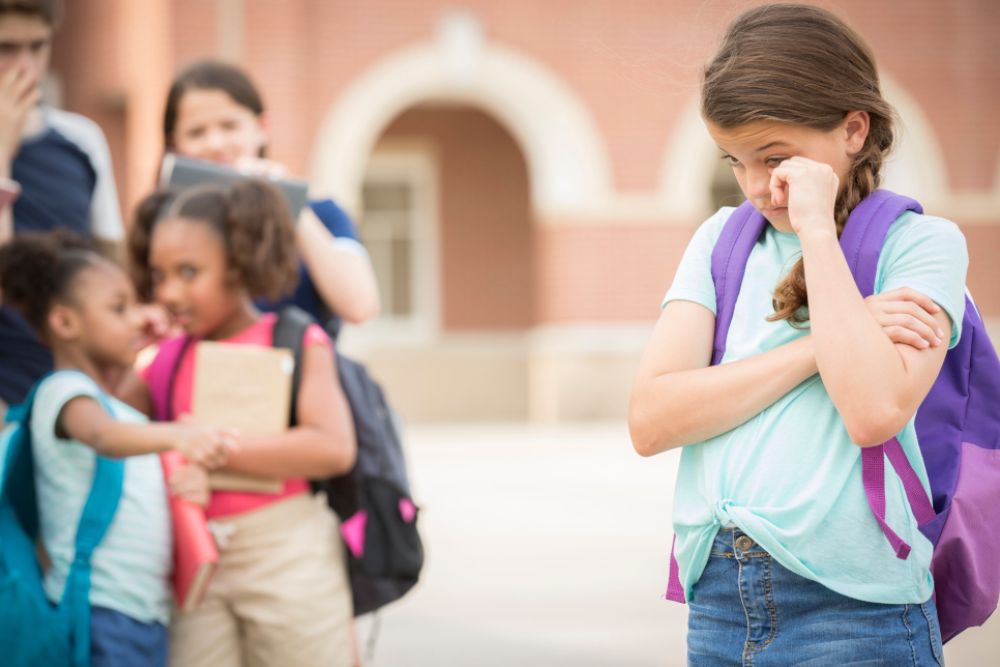
My friends gossip about me
“Some of the main reasons why people talk badly about even their friends include a lack of satisfaction with their own life or a feeling of low self-worth that they are trying to compensate for,” says Petra Schornböck. “Girls are affected in particular because they often learn to prefer the approach of avoiding conflict. If they feel threatened or are exposed to an unwanted situation, they initially only talk about the issue behind others’ backs,” explains the counselor.
Boys, however, are said to be more direct in those situations and settle conflicts mostly openly. This can be very unpleasant for those who are – sometimes surprisingly – the targets of gossip. “School children or young girls in particular quickly become overwhelmed in situations like that,” says Schornböck. “It can be difficult for them to talk to their friends about it directly, although discussing would be ideal.” The first step is to find out the extent of the gossiping so you can act accordingly. It’s important to distinguish “gossiping” from “bullying”.
The first is more coincidental, while with bullying a victim is intentionally targeted and harassed more than once. If just one person is involved, a simple discussion can bring light to the darkness. It is possible, though, that everything will be denied. This is very common and can lead to a massive breakdown in trust. You need to be clear about whether those people are really your friends, but lots of things are also said in the heat of the moment or under pressure from the group and are mostly not even meant or intended that way.
Many conflicts cannot be resolved by discussing the matter head on. If several friends are involved, it is easy to become overwhelmed, particularly as a schoolchild. Someone you trust, a teacher or a school psychologist may be able to help. The most effective thing to do is to talk to children about topics such as “arguing, gossiping and bullying” on a regular basis, to explain terms and to set out strategies to help those who are affected. This can be done in school, but parents can and should talk to children about conflicts too. In any case, disputes and “feelings of being left out” should not be played down or disparaged under any circumstances. If a class discussion doesn’t work, the “sprungbrett” Counseling Center also offers group workshops in which these dynamics can be dispelled. A counseling session is also available with sprungbrett.
Children have a harder time processing incidents of this type than adults. Since young people have to discover their own identities during puberty, any damage to their sense of self is particularly difficult. The consequences are a decrease in self-worth, loss of trust, depression through to suicidal thoughts. It always helps to reflect on what has happened with teachers, parents, friends and therapists. If you or your child are dealing with this or a similar situation, the numerous family counseling centers in Austria would be happy to help.
Our interview partner
Petra Schornböck, clinical and health psychologist, counselor at the sprungbrett Counseling Center in Vienna.
Verein Sprungbrett
Hütteldorfer Straße 81b/ Stiege 1/ Top 4
1150 Vienna
Website sprungbrett
The interview was conducted in March 2017 and revised in April 2022.
_Freundin%20oder%20Mutter.jpg)

